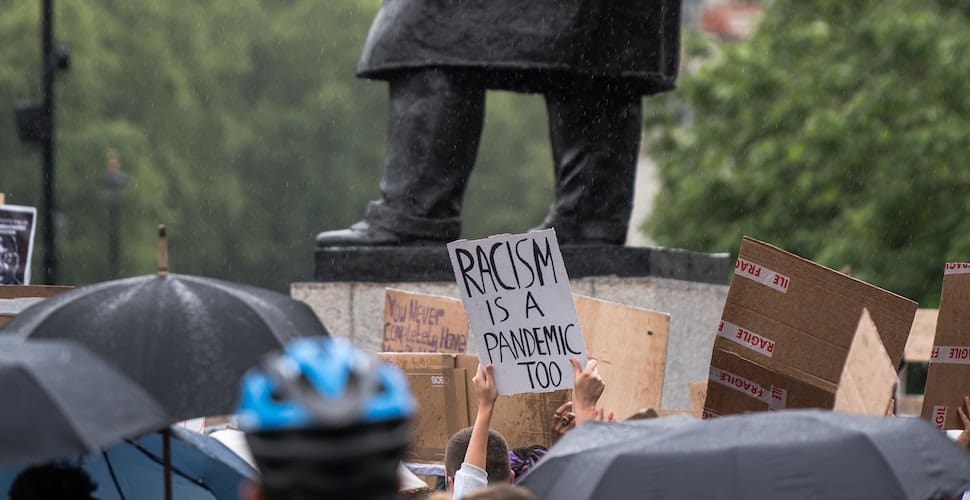In an opinion piece for Thomson Reuters Foundation, Azim Kidwai, CEO of Mercy Mission UK and Special Advisor to the UN on Islamic Philanthropy, argued that the Black Lives Matter movement must extend its focus to modern day slavery.
The recent Black Lives Matter protests have drawn crucial attention to historical slavery and on the continued celebration of figures that participated actively in the slave trade
Modern slavery, however, has rarely been the focus of outrage.
Kidwai argues that this ignores the fact that our society and economy is built partly on the backs of people in modern slavery—not purely on historical slavery and its legacy.
He also points out that while the mechanism of enslavement may have changed, both historical and modern slavery rely on rationalizations that view those enslaved as inferior.
While commending the current movement and affirming that the current protests are valid and productive, Kidwai argues that it risks hypocrisy in ignoring the fact we benefit from modern slavery.
Kidwai writes for Thomson Reuters Foundation:
Without detracting from the suffering, past and present, of black communities, we should not shy away from asking ourselves how it feels to see statues of slave owners pulled down if you are one of the 40 million human beings alive today who are faced with their own living, breathing, slave owners. Slave owners who may not be celebrated or recognised in statues, but benefit from a legal system that makes them almost untouchable.
Those who trade in modern slavery – the people traffickers, the controllers of forced labour and the child abusers – will be emboldened by our fanatical focus on past crimes, and acquiescence to current ones.
While the descent-based slavery of the past has largely been eliminated, forced labor, child labor, human trafficking, and forced marriage are embedded in the global system in a pervasive manner that makes them difficult to confront.
Moreover, while slavery has officially been abolished in the law worldwide, Kidwai alludes to the kafala system present in many Gulf states and argues that these legal practices are not dissimilar to historical slavery.
Kidwai argues that laws currently in place to fight modern slavery do not go far enough, noting that company directors in the U.K. face harsher penalties for bribery than for modern slavery.
In order to effectively tackle modern slavery around the world, Kidwai urges for modern slavery to be treated as a crime against humanity, and for it to be rejected with the same vehemence as historical slavery.
The Black Lives Matter movement and its dedication to justice has much to bring to the global movement against modern slavery—and it cannot afford to ignore it.







Freedom United is interested in hearing from our community and welcomes relevant, informed comments, advice, and insights that advance the conversation around our campaigns and advocacy. We value inclusivity and respect within our community. To be approved, your comments should be civil.
You took the time to write the comment but not to educate yourself…
Modern day slavery is as evil, cruel, insulting as XIX the century slavery. It must be ddnounced.
Black lives matter is a self proclaimed Marxist and is racist themselves , they are a Trojan horse ! “These people are advocating for violence against police officers,” so they’re hypocrites!